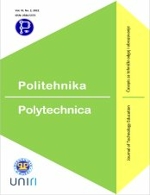Analiza preferencija učenika osnovne škole prema budućem karijernom razvoju u tehnici i tehnologiji
Analysis of primary school students' preferences towards future career development in technology and engineering
Author(s): Damir PurkovićSubject(s): School education, Educational Psychology, State/Government and Education, ICT Information and Communications Technologies, Sociology of Education, Pedagogy
Published by: Akademsko politehničko društvo APOLD Rijeka
Keywords: Informatics; career aspirations; attitudes and interests of students; Technical Culture; technology and engineering;
Summary/Abstract: The needs and demands of the labour market indicate a shortage of many occupations, among which there are often different profiles in the field of engineering and technology. Since children should be encouraged and directed towards such professions already in elementary school, it is certain that their attitudes and interests can be influenced by school education. Therefore, in this paper, an investigation and analysis of students' attitudes and interests towards career development in the field of engineering and technology was conducted. The study was conducted on a stratified sample (N = 2155) of primary school students. The analysis includes gender and age differences in their direct interest, attitudes toward occupations, experience levels, and career aspirations. The t-test and one-way ANOVA with Scheffé post-hoc tests were used to analyse the collected data. The results show that they are very interested in activities related to engineering and technology and that they understand the reasons for choosing a career in this field. However, there are significant gender and age differences in their own aspirations and perceptions regarding these occupations, as well as in their experiences. At the same time, girls are significantly less interested in careers, experiences and activities in technology compared to boys. Although students in lower grades are more interested in engineering and technology, they are less likely to pursue activities, jobs, and careers in this field compared to students in higher grades. These findings point to the need to adapt content and activities to appeal equally to girls and boys, including changing pedagogical approaches, teaching styles, and more investigation and design activities in the classroom. Age adaptation requires changes in curriculum implementation, particularly in computer science instruction, more meaningful hands-on activities, investigation, and integrated activities, and more time for such activities in the primary school curriculum.
Journal: Politehnika: Časopis za tehnički odgoj I obrazovanje
- Issue Year: 6/2022
- Issue No: 2
- Page Range: 8-17
- Page Count: 10
- Language: Croatian

